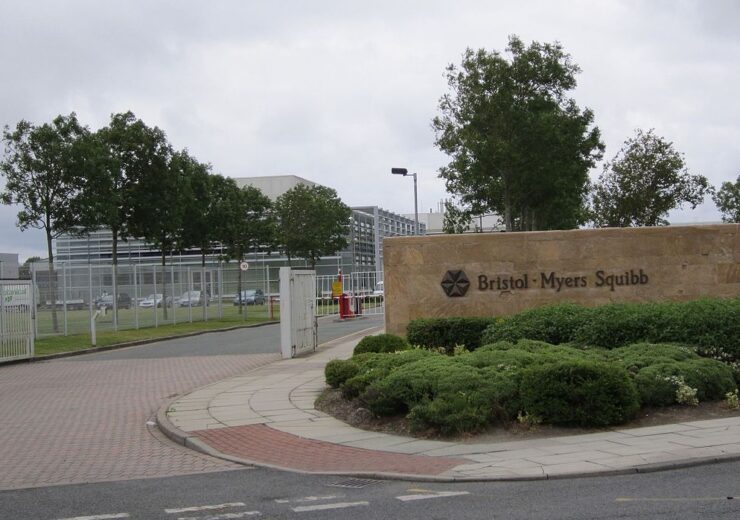The EC approval was based on results from the Phase 3 CheckMate-649 trial, which showed positive outcomes for Opdivo plus chemotherapy

Bristol-Myers Squibb facility in Wirral, England. (Credit: Rept0n1x/Wikipedia.)
Bristol Myers Squibb (BMS) has received the European Commission (EC) approval for Opdivo (nivolumab) plus chemotherapy (fluoropyrimidine- and platinum-based) to treat certain gastrointestinal cancers.
The Opdivo combination was indicated for HER2-negative gastric, gastroesophageal junction (GEJ), or oesophageal adenocarcinoma (EAC) in adults.
Opdivo is an anti PD-1 therapy that prepares the body’s own immune system to trigger anti-tumour immune response and is used to treat multiple cancers.
The drug was previously approved, as a stand-alone therapy and in combination, for other indications in different cancer types, in several countries worldwide.
BMS is currently studying the drug in a global development programme, which includes a wide range of clinical trials in different tumour types.
Bristol Myers Squibb gastrointestinal cancers development lead Ian Waxman said: “This approval marks a great achievement for many patients with gastric, gastroesophageal junction and oesophageal adenocarcinomas, who now have a new treatment option that has demonstrated superior overall survival compared to the long-standing standard of care.
“With limited advances for HER2-negative gastric cancers made in the past ten years, we are especially pleased to move the field forward and introduce this Opdivo-based combination for patients in the European Union.”
The EC approval was based on results from the Phase 3 CheckMate-649 trial, which assessed Opdivo plus chemotherapy combination compared to chemotherapy alone.
Phase 3 CheckMate-649 trial enrolled patients with previously untreated, non-HER2-positive, gastric cancer, GEJC or EAC.
In the study, the drug combination showed a statistically significant and clinically meaningful improvement in overall survival (OS) and progression-free survival (PFS), meeting the primary endpoints of the study.
Opdivo plus chemotherapy showed a consistent safety profile in the CheckMate -649 trial, with the known safety profiles of the individual treatments.
The most frequent adverse reactions were peripheral neuropathy, nausea, fatigue, diarrhoea, vomiting, decreased appetite, abdominal pain, constipation, musculoskeletal pain, pyrexia, rash, stomatitis, cough, oedema, headache, and respiratory tract infection.
With the EC approval, the cancer drug is allowed for use in the 27 member states of the European Union (EU), along with Iceland, Liechtenstein, and Norway.
